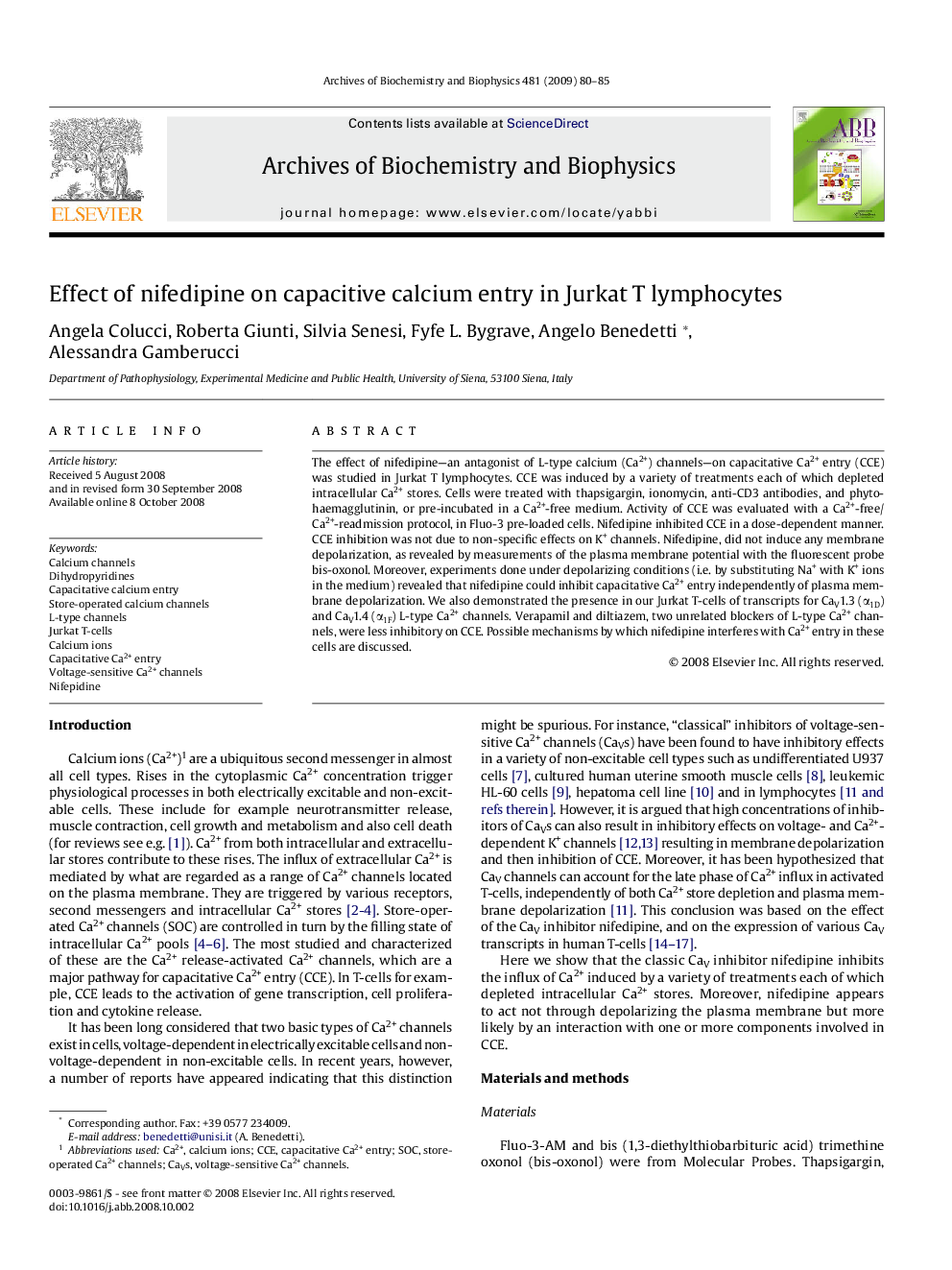| Article ID | Journal | Published Year | Pages | File Type |
|---|---|---|---|---|
| 1926454 | Archives of Biochemistry and Biophysics | 2009 | 6 Pages |
The effect of nifedipine—an antagonist of L-type calcium (Ca2+) channels—on capacitative Ca2+ entry (CCE) was studied in Jurkat T lymphocytes. CCE was induced by a variety of treatments each of which depleted intracellular Ca2+ stores. Cells were treated with thapsigargin, ionomycin, anti-CD3 antibodies, and phytohaemagglutinin, or pre-incubated in a Ca2+-free medium. Activity of CCE was evaluated with a Ca2+-free/Ca2+-readmission protocol, in Fluo-3 pre-loaded cells. Nifedipine inhibited CCE in a dose-dependent manner. CCE inhibition was not due to non-specific effects on K+ channels. Nifedipine, did not induce any membrane depolarization, as revealed by measurements of the plasma membrane potential with the fluorescent probe bis-oxonol. Moreover, experiments done under depolarizing conditions (i.e. by substituting Na+ with K+ ions in the medium) revealed that nifedipine could inhibit capacitative Ca2+ entry independently of plasma membrane depolarization. We also demonstrated the presence in our Jurkat T-cells of transcripts for CaV1.3 (α1D) and CaV1.4 (α1F) L-type Ca2+ channels. Verapamil and diltiazem, two unrelated blockers of L-type Ca2+ channels, were less inhibitory on CCE. Possible mechanisms by which nifedipine interferes with Ca2+ entry in these cells are discussed.
